The historic Palais des Académies in Brussels hosted a landmark event on 12 May 2025—the High-Level Think Tanks Symposium titled “EU-China at 50: Prospects for the Future.” This exclusive gathering of thought leaders and policymakers celebrated five decades of diplomatic relations between the European Union and the People’s Republic of China, providing a platform to explore opportunities for deeper collaboration and mutual understanding.
The symposium was a collaborative initiative organized by the Royal Academy for Overseas Sciences of Belgium, Ghent University’s ReConnect China Horizon Europe Research Consortium, the Chinese Academy of Social Sciences (Institute of European Studies), and EGMONT – Royal Institute for International Relations.
Highlights from the Programme
Welcome
Words of welcome by Prof. Dr. Bart Dessein, Scientific Coordinator of the ‘ReConnect China’ consortium, President of the Royal Academy for Overseas Sciences, and senior associate of the Egmont Royal Institute for Overseas Sciences.
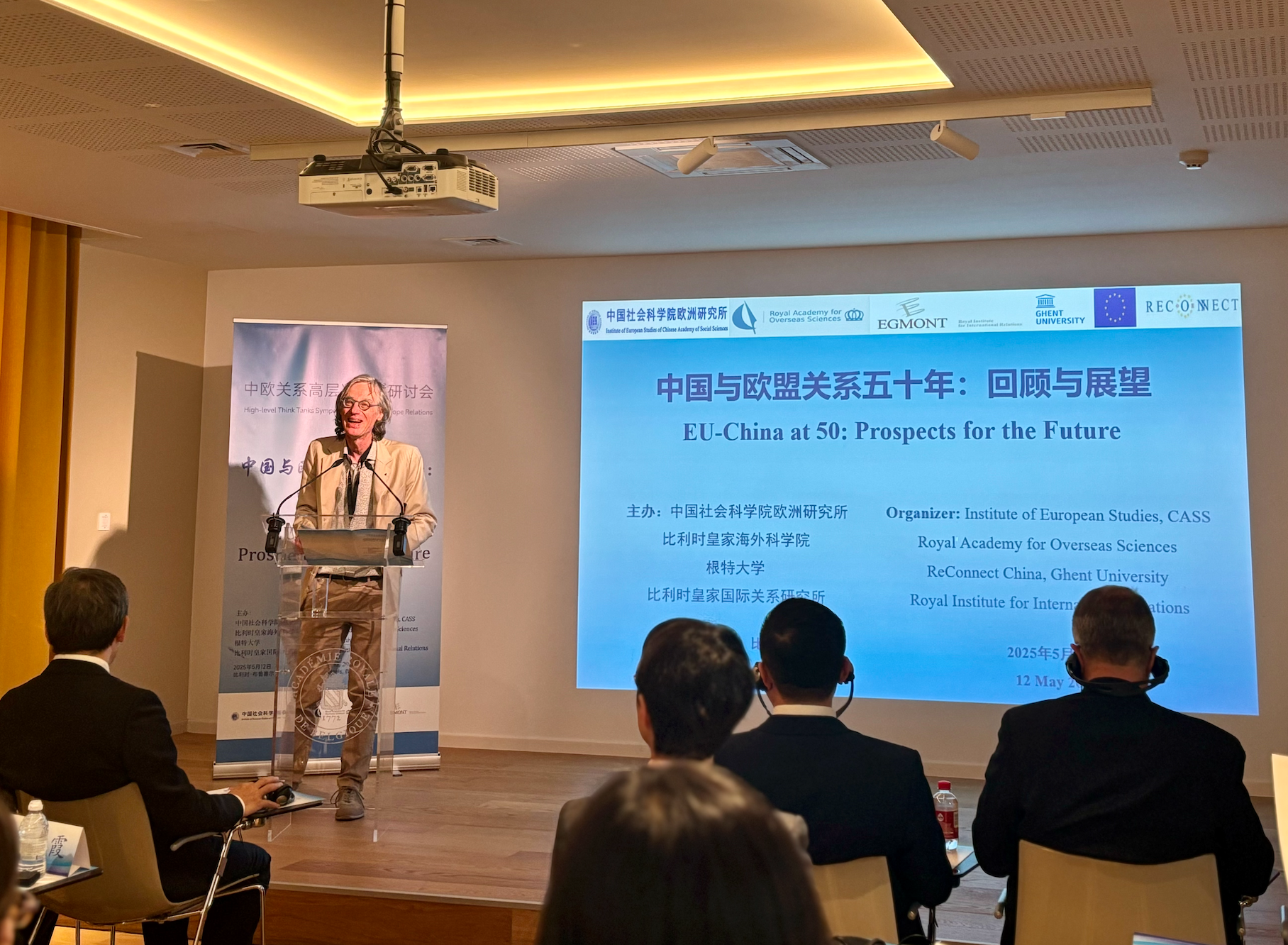
Opening Remarks
The symposium began with remarks by prominent leaders who set the tone for in-depth discussions:
- Dr. Philippe De Maeyer, Permanent Secretary, Royal Academy for Overseas Sciences (RAOS)
- Zhao Zhimin, Secretary General, Chinese Academy of Social Sciences (CASS)
- Ambassador Cai Run, Head of the Chinese Mission to the EU
- Dominic Porter, Head of Division China, European External Action Service (EEAS)
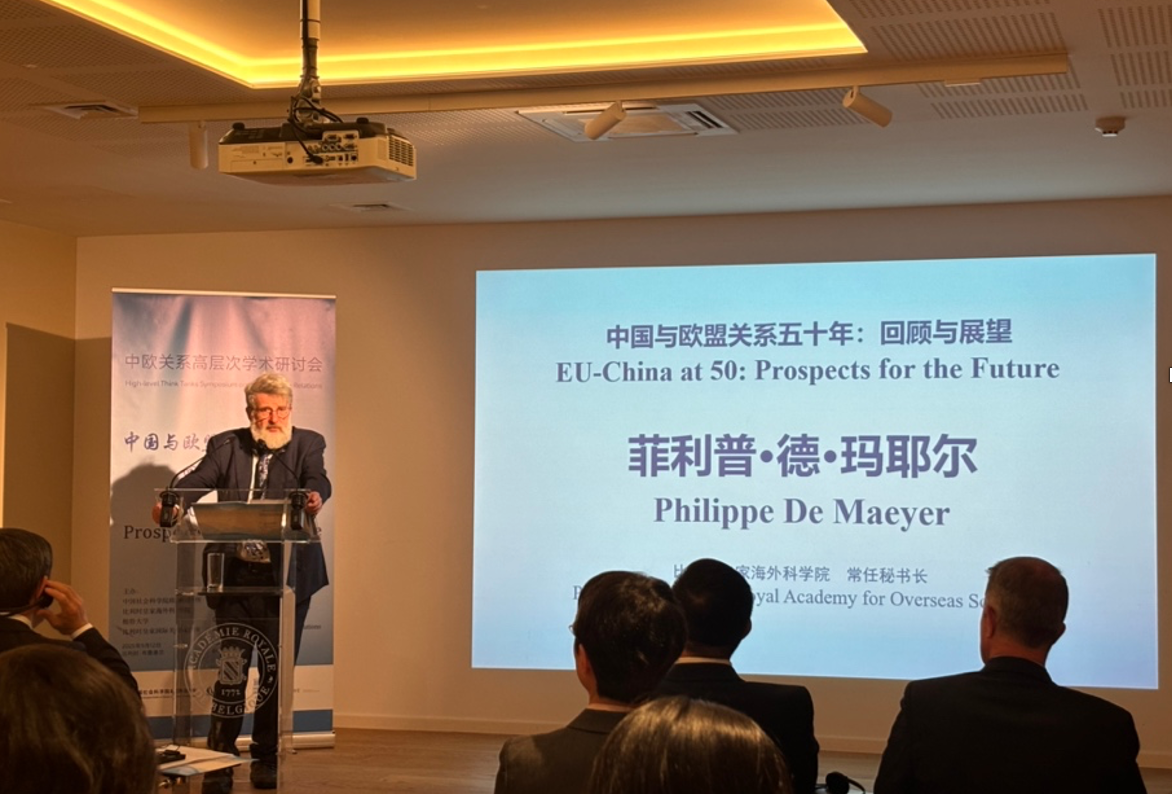
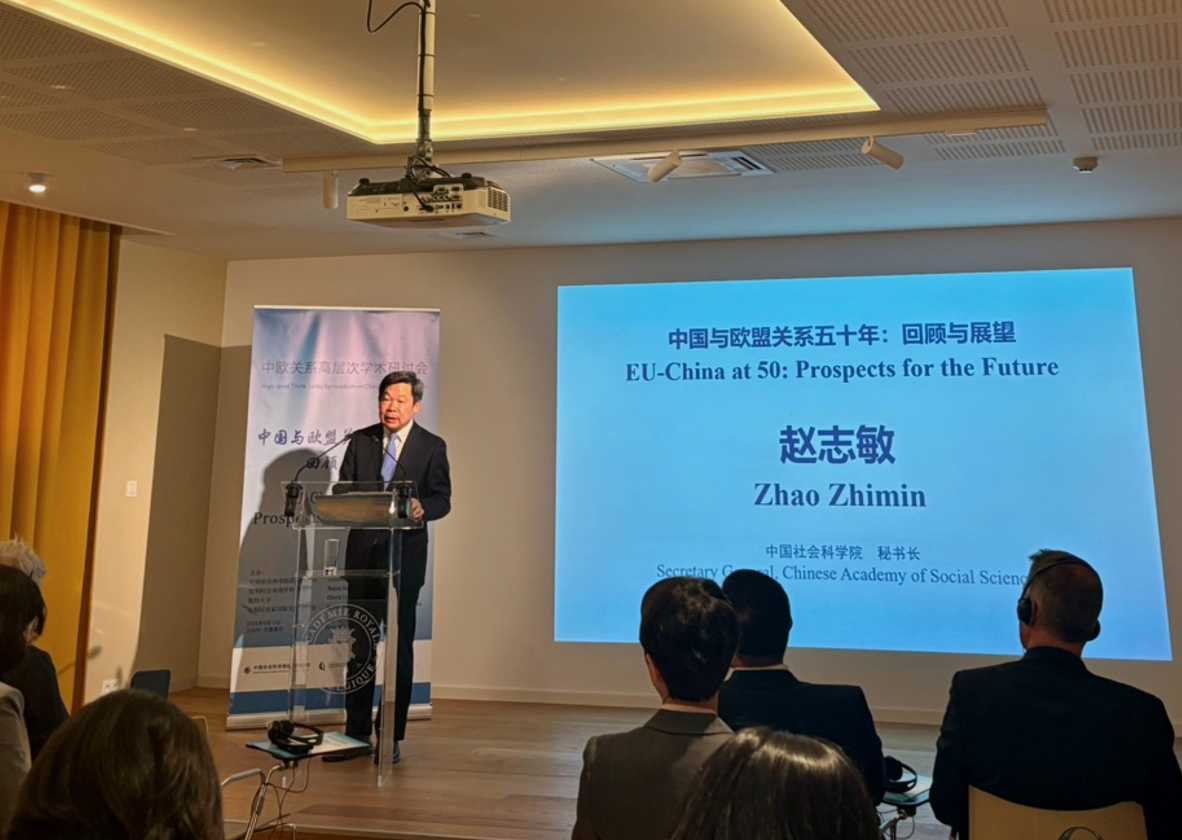
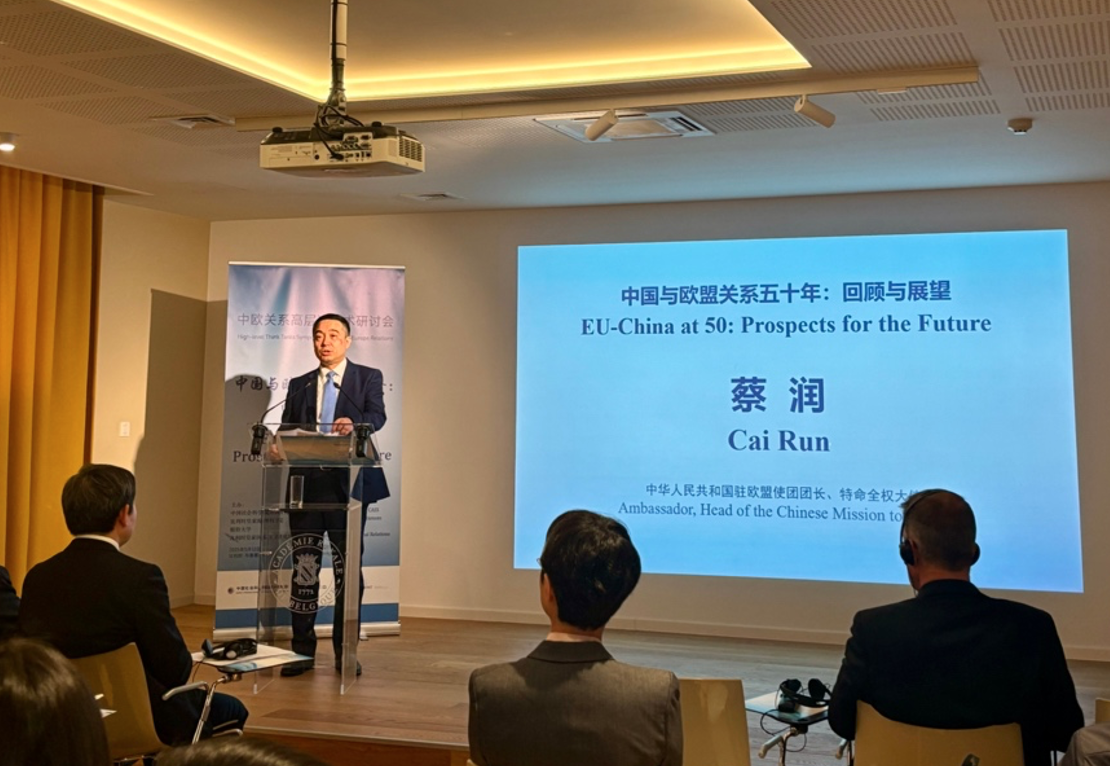
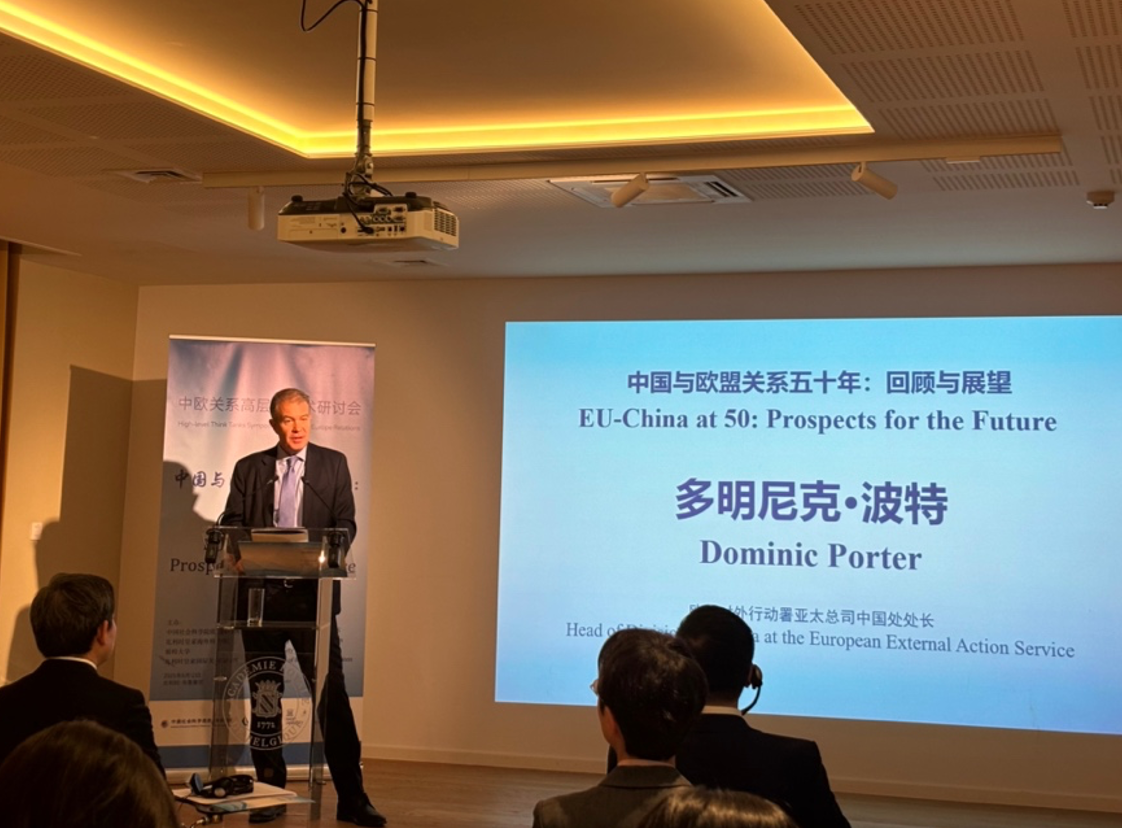 Panel Discussions
Panel Discussions
Chaired by renowned scholars, the panels featured in-depth analyses by leading experts:
- Global Economy Panel: Prof. Tian Huifang (CASS), Prof. Sun Yanhong (CASS), Dr. Françoise Nicolas (IFRI), and Dr. Tobias Gehrke (ECFR).
Highlighting the importance of global connectivity and fostering a stable, equitable economic partnership as a cornerstone of the global economy.
- Global Governance Panel: Prof. Zhang Yongsheng (CASS), Prof. Zhao Chen (CASS), Dr. Tim Rühlig (EUISS), and Dr. Sven Biscop (Egmont).
Exploring the responsibilities of major powers in maintaining peace, stability, and multilateral cooperation in a multipolar world.
- China-EU Dialogue Panel: Dr. Feng Zhongping (CASS), Prof. Zhang Jinling (CASS), Dr. Nadine Godehardt (SWP), and Prof. dr. Bart Dessein (Ghent University)
Emphasizing the role of academic and cultural exchanges in fostering trust and understanding between the two regions.
A Milestone Event
The symposium underscored the potential for fostering trust and innovative partnerships between the EU and China in an increasingly dynamic global landscape. Through open dialogue, participants reiterated their commitment to advancing bilateral relations across governance, economic stability, and cultural exchange.
(Texts and Photos by Huanyu Zhao)